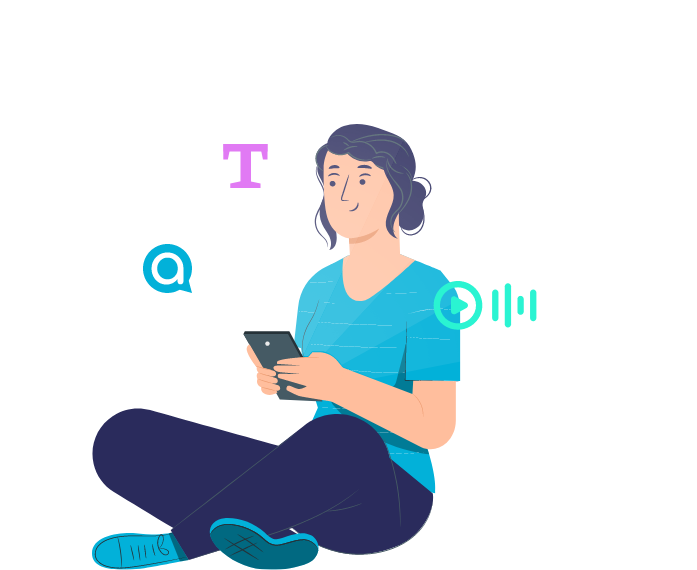The project
BiblioLingua’s aim is to offer adapted reading material, combining the acquisition of a second language with the promotion of European literature and heritage. This library is aimed in particular at secondary school students.
The adaptations have been designed to offer personalized reading and learning, particularly for students with special needs. Different levels of difficulty are available. Some ebooks have been adapted into international sign language. Audio playback accompanies the ebooks.
Context
According to the results of the European Union’s 2015 European survey on language competences (ESLC), which measures pupils’ foreign language skills, language levels are not sufficient. In fact, only 42% of students tested achieved the required level (B1-B2) in a second foreign language. And only 25% of students achieve a similar level in a third language.
Language skills are essential for success at school, but also for social inclusion and employment. A 2015 European Commission study on foreign language skills and employability found that adults who know one or more foreign languages are more likely to be employed than those who don’t.
The Commission has thus adopted a series of strategies to encourage multilingualism, as well as Council recommendations for language teaching and learning. The aim is to promote the ability of citizens to speak foreign languages, in order to foster intercultural dialogue, improve employability and facilitate the free movement of workers within the European Union.
In this perspective, particular attention is paid to foreign language teachers, as evidenced by the Council Recommendation of May 22, 2019, which reinforces the idea that language teachers in Europe could benefit from continuous professional development to improve their pedagogical practice by drawing on new skills and digital tools.
BiblioLingua therefore focuses on reinforcing key skills in language acquisition and using new methods and technologies to support learning. The aim of the project is to provide secondary school pupils at all levels with a digital reading solution and access to European literature.
Goals
The BiblioLingua project proposes to build on the classics by offering a range of books adapted to encourage the practice of reading and comprehension in a foreign language.
It also proposes to develop the digital skills of teachers in offering content training around the use and creation of digital books multilingual.
Target groups
The Bibliolingua project is aimed at secondary school students and teachers.
Resources
- The online library : it will contain 17 animated and illustrated ebooks of emblematic and representative literary works from past centuries.
- A guide to help teachers create their own digital books.
- A pedagogical dossiers linked to each ebooks containing :
- an overview of the work of art, the period, its historical and cultural significance, etc
- an overview of the work of art, the period, its historical and cultural significance, etc, These lessons will be structured to provide activities suitable for all learners, especially those with special needs.


